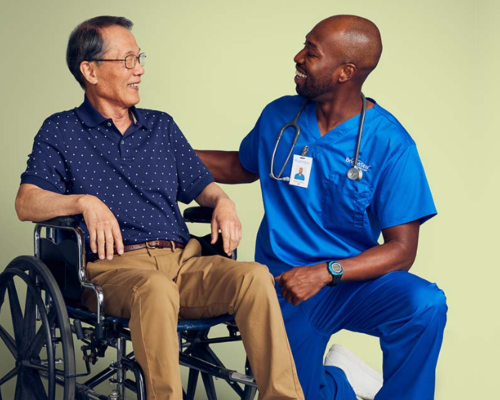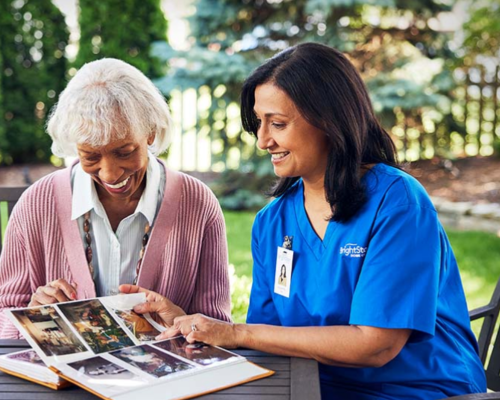Becoming a caregiver is a deeply rewarding yet challenging journey that requires a special blend of qualities, dedication, and preparation. Whether you're considering becoming a professional caregiver or stepping into a caregiving role for a loved one, understanding the key qualities and considerations is crucial for providing compassionate, effective care. This comprehensive guide outlines essential aspects to help you assess your readiness and prepare for the responsibilities ahead.
Understanding the Role of a Caregiver
A caregiver provides support and assistance to individuals with disabilities, illnesses, or the elderly, helping them with daily tasks and improving their quality of life. This role encompasses a broad range of activities, from personal care and medication management to companionship and emotional support. Recognizing the scope and demands of caregiving is the first step in assessing your readiness..png)
Key Qualities of an Effective Caregiver
The role of a caregiver is multifaceted, requiring not just a set of skills, but a combination of inherent qualities and cultivated virtues. These qualities not only define the caregiver's ability to provide care but also significantly impact the quality of life of those they care for. Let’s delve deeper into the essential qualities that underscore effective caregiving.Compassion and Empathy: The Cornerstone of Caregiving
Compassion and empathy are the bedrock upon which caregiving rests. These qualities allow caregivers to connect with those in their care on a deeply personal level, fostering a nurturing environment that goes beyond mere physical support. Empathy enables caregivers to understand and feel what others are going through, allowing them to provide care that truly resonates with the individual's emotional state and needs. This empathetic approach ensures that care is not just a service but a form of support that upholds the dignity, preferences, and autonomy of those receiving care.Patience and Flexibility: Navigating the Unpredictable
The caregiving journey is unpredictable, presenting challenges that require immense patience and flexibility. Caregivers often face situations that test their limits – from sudden changes in their care recipient's health to emotional upheavals. Patience is the calm in the storm, allowing caregivers to approach these challenges with a level head, ensuring that decisions are made in the best interest of those they care for. Flexibility, on the other hand, enables caregivers to adapt to new routines, changing health scenarios, and the evolving needs of those in their care, ensuring that care remains responsive and relevant..png)
Reliability and Trustworthiness: Building a Foundation of Trust
Trust is fundamental in a caregiver-care-recipient relationship. Reliability and trustworthiness are the pillars that build this trust, ensuring that individuals in care and their families feel secure in the knowledge that their loved ones are in good hands. This means showing up consistently, fulfilling responsibilities with diligence, and always acting in the best interest of those in their care. A trustworthy caregiver upholds the privacy, respects the wishes, and ensures the safety of their care recipients at all times.Communication Skills: The Bridge to Effective Care
Effective communication is vital in caregiving. It’s not just about conveying information but doing so with sensitivity and understanding. Caregivers must navigate conversations with care recipients, their families, and healthcare professionals, ensuring that everyone is informed and that care decisions are made collaboratively. Good communication also involves listening – understanding the concerns, wishes, and feedback of those in care and their loved ones, thereby ensuring care is person-centered and inclusive.Physical and Emotional Stamina: Sustaining the Caregiving Journey
The demands of caregiving are both physical and emotional. Physical stamina enables caregivers to perform tasks that may be demanding, such as assisting with mobility or managing emergency situations. Emotional stamina, however, is what sustains caregivers through the emotional highs and lows of their role.This involves managing stress, coping with the emotional strain of caring for someone with significant needs, and finding ways to replenish their own emotional reserves. Maintaining personal health and wellbeing is not an act of self-indulgence but a critical component of being an effective caregiver.
caregiving journey, nurturing these qualities is as important as developing the skills required for care tasks. Together, they form the foundation of care that is truly responsive, respectful, and enriching for both the caregiver and those they serve.
Preparing for Caregiving: Key Considerations
- Understanding the Care Recipient's Needs: Comprehensive knowledge of the care recipient's medical conditions, preferences, and daily needs is essential for providing personalized care.
- Developing a Support System: Caregiving is not a solo journey. Building a network of family, friends, and professional resources can provide the support you need.
- Legal and Financial Considerations: Familiarizing yourself with the legal and financial aspects of caregiving, including power of attorney and healthcare directives, is crucial for managing your care recipient's affairs effectively.
- Self-Care for Caregivers: Prioritizing your wellbeing is essential. Regular breaks, self-care routines, and seeking professional support can help prevent caregiver burnout.
- Continuing Education: The field of caregiving is continually evolving. Pursuing ongoing education and training can enhance your skills and knowledge, ensuring high-quality care.
Embracing the role of a caregiver is a significant decision that impacts both the caregiver and the care recipient's lives. It requires a unique combination of qualities, preparation, and dedication. By understanding the key qualities and considerations outlined in this guide, you can assess your readiness and take steps toward becoming an effective caregiver. Remember, caregiving is a journey of compassion, resilience, and growth, offering profound rewards for both the caregiver and those they serve.
Contact BrightStar Care® of Greater Austin!
Looking into caregiving services may be overwhelming, but with BrightStar Care of Greater Austin, we ensure to make the process so much easier for you. We are here to provide you with the resources and support you need to take care of your loved one. We are confident that our team of professionals will assist you in looking for the right caregiver to take care of your loved one by keeping you in the loop and more. Contact us today to learn more about caregiving services! Our office is located at 1317 Picadilly Dr b201, Pflugerville, TX 78660. You may also call us at 512-452-9800. We look forward to hearing from you!

